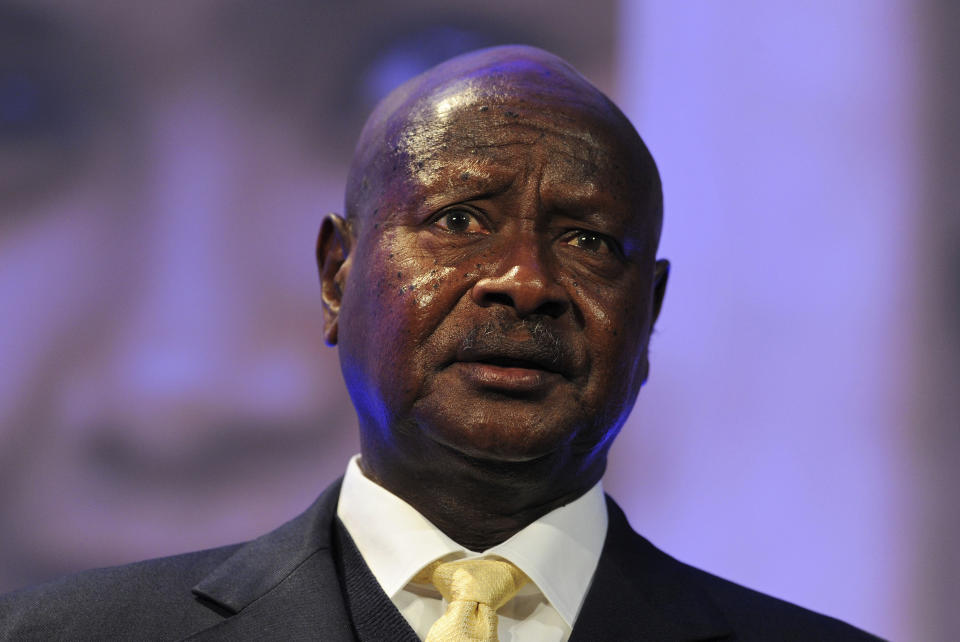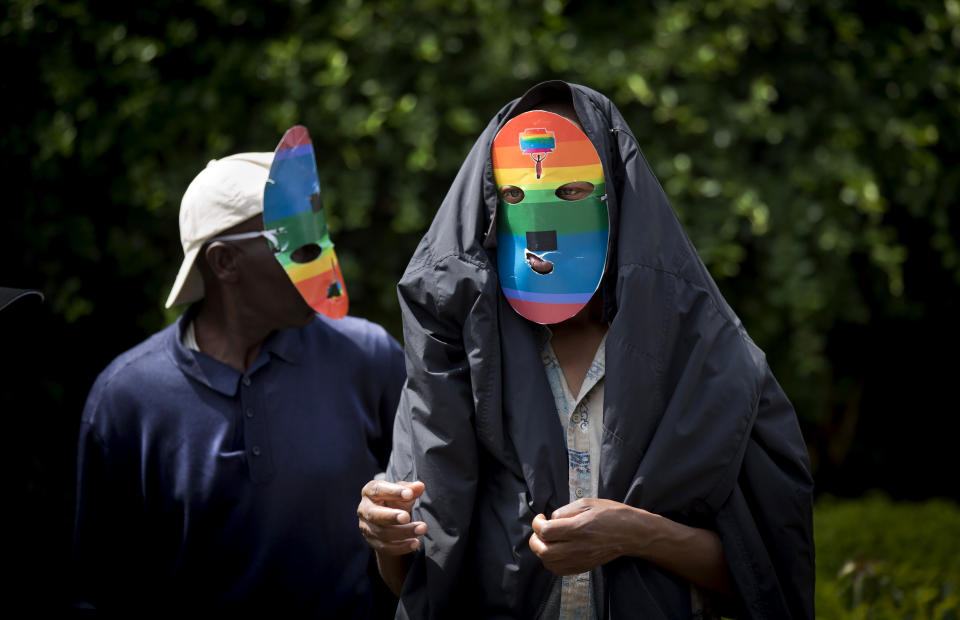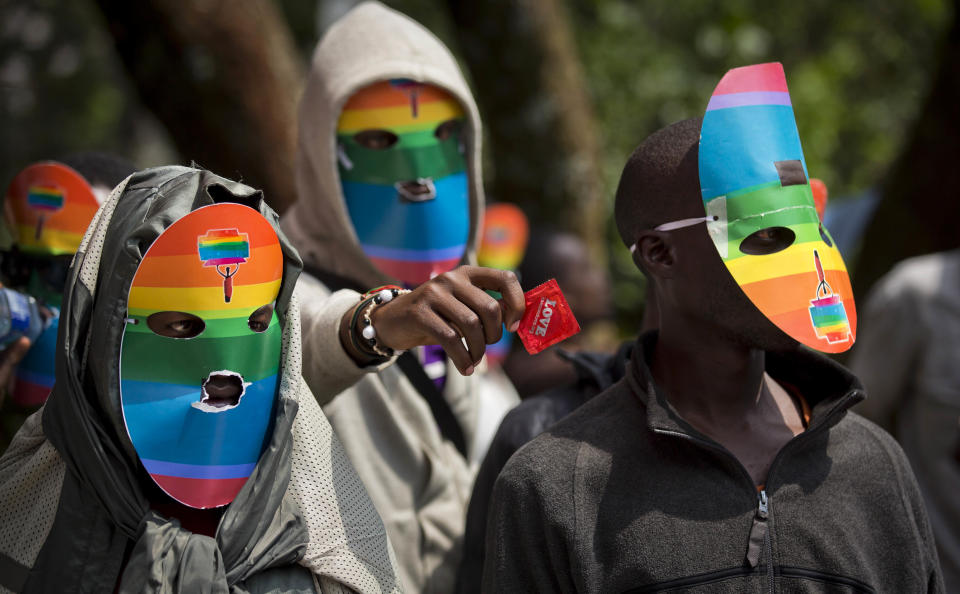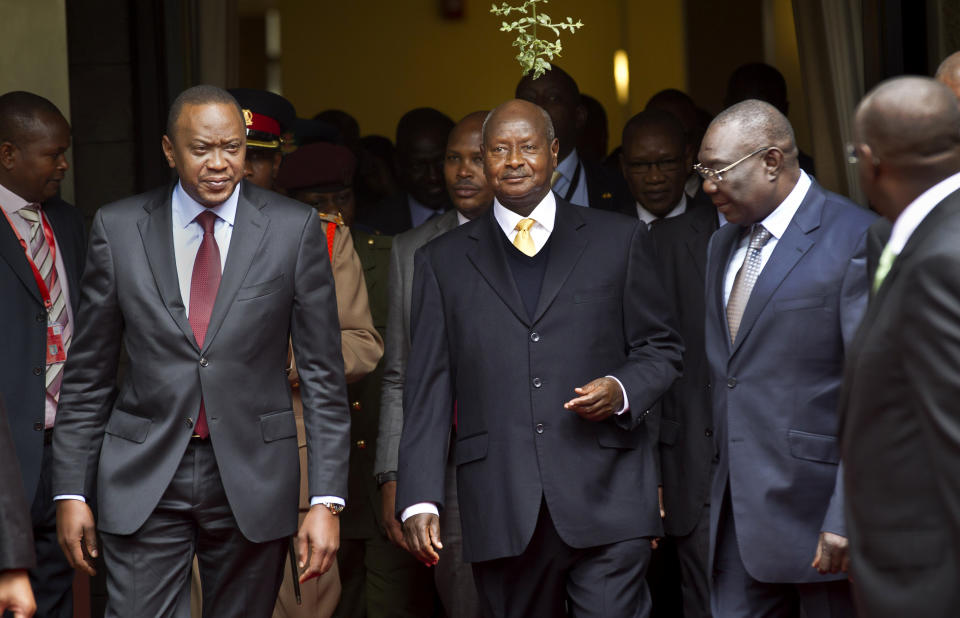Uganda's president to sign anti-gay bill Monday
ENTEBBE, Uganda (AP) — Uganda's president is expected on Monday to sign into law a controversial anti-gay bill that has harsh penalties for homosexual offenses.
The Uganda Media Center invited journalists Monday to witness the signing ceremony at the president's official residence in Entebbe, about 40 kilometers (24.86 miles) from the capital, Kampala.
The bill is popular in Uganda, but international rights groups have condemned it as draconian in a country where homosexuality is already criminalized.
U.S. President Barack Obama has urged Ugandan President Yoweri Museveni not to sign the bill, saying it would "complicate" the east African country's relationship with Washington.
The bill calls for first-time offenders to be sentenced to 14 years in jail. It also sets life imprisonment as the maximum penalty for a category of offenses called "aggravated homosexuality," defined as repeated gay sex between consenting adults as well as acts involving a minor, a disabled person or where one partner is infected with HIV. The bill originally proposed the death penalty for some homosexual acts, but that was later removed amid international criticism. Some European countries have threatened to cut aid to Uganda if the bill is enacted.
Museveni had previously opposed the bill, calling it harsh even as he slammed homosexuals as "abnormal" people who should be "rehabilitated." But last week he changed his stand, saying a team of Ugandan scientists had reported that there is no evidence that homosexuality is caused by genetics. In a statement on Friday, Museveni said he was willing to review the legislation if Western scientists give him evidence to the contrary.
The bill was introduced in 2009 by a lawmaker with the ruling party who said the law was necessary to deter Western homosexuals from "recruiting" Ugandan children. Ugandan gays challenged this account, saying country's political and religious leaders were influenced by conservative U.S. evangelicals who spread their anti-gay agenda in Africa.
Pepe Julian Onziema, a prominent Uganda gay activist, said he was disappointed that Museveni is proceeding to sign the bill without taking time to talk to the people targeted by the law: Ugandan homosexuals.
"The president is making this decision because he has never met an openly gay person. That disappoints me," he said.
Some in Uganda's gay community had repeatedly tried and failed to meet with Museveni, he said.
Museveni, whose popularity has been fading amid criticism that he wants to rule for life, has faced pressure from the ruling party to sign the anti-gay measure.
Some critics believe Museveni is signing the bill in hopes of galvanizing political support within his party ahead of an upcoming meeting that is expected to endorse him as the party's sole choice in the next presidential election in 2016, when he will have been in power for 30 years.




